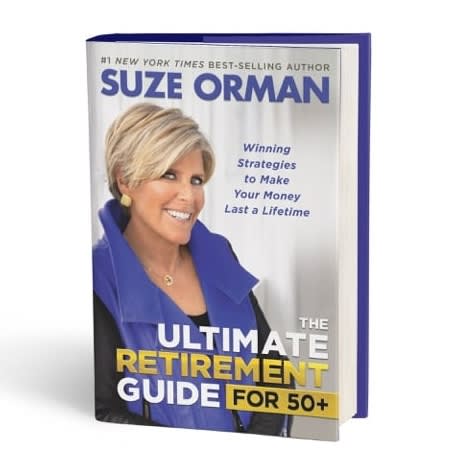For many Americans, owning their own home is still an essential goal. And right now, you may end up having more purchasing power: Interest rates are low because the Federal Reserve cut rates to contain the impact of the coronavirus pandemic.
Last week, the average interest rate on a 30-year mortgage was just 3.3%, much lower than the average 4.1% APRs logged a year ago in April 2019, according to data from Freddie Mac. With that drop in interest rates, the monthly payment on a $320,000 home is now about $100 less, or roughly $1,500 per year, according to real estate site Redfin’s mortgage calculator.
While those rates may have you dreaming about getting a deal on a new home, how do you know if you can afford to quit renting and actually buy a home of your own? Financial expert Suze Orman says she gets this question all the time from her readers. First, it’s important to realize that buying a home is about more than simply having a down payment and being able to pay the monthly bill — even if interest rates are at historic lows, she says.
For many Americans, their expected mortgage payment may not be all that different from their current monthly rent. But even if you have a down payment saved up, you still may fall short when it comes to paying for all the monthly expenses of owning a home.
When you buy a home, you have to pay property taxes, insurance and maintenance costs on top of your mortgage payment, Orman says. Plus, if you put less than 20% of the home’s purchase price as the down payment, you’ll also have to pay private mortgage insurance, or PMI, to offset the risk your lender is taking in approving you for a home loan.
Those costs add up. Orman estimates that these extra, but necessary expenses, will cost you an additional 45% over your mortgage, just to keep your home.
Orman’s Trick to Figure Out if You Can Buy a Home
In order to figure out if you can afford to buy, Orman says first-time homebuyers should test their finances. “I want you to play house,” says Orman, who recently released “The Ultimate Retirement Guide for 50+.”Let’s assume you pay $1,000 in rent and estimate that your mortgage will cost about the same. Over the next six to eight months, take $450 a month and put it in a savings account on the first of every month.
That’s in addition to the eight-month emergency fund and the 20% down payment that Orman recommends having in place before you even start to look at local real estate ads.
“If in six to eight months from now, you are able to do it on time every single month, you can afford that home,” Orman says. Plus, after eight months, you’ll have almost $4,000 to put toward your closing costs.

Keep in mind that setting aside $450 a month is probably on the low end of what you’ll need. You’d be hard pressed to spend just $1,000 on rent or a monthly mortgage payment in certain parts of the country, such as New York or California. Nationally, the latest median home listing price is about $320,000, according to Realtor.com’s March housing trends report.
That means if you’re looking to buy a home that’s on par with the average cost, your monthly payment will be closer to $1,500 a month for your mortgage, interest, taxes and insurance, according to Redfin’s calculator. That’s based on an interest rate of about 3.3% on a 30-year loan.
To practice Orman’s strategy, you’d need to set aside an extra $675 a month. The more expensive your mortgage, the more you’ll have to pay in those extra costs, so the more you’ll have to practice saving.
“Most of your mortgage payments are going to be a lot more than that,” Orman says. But $1,000 is a good way to illustrate how the numbers work. “This works if it’s a $1,000 a month mortgage payment, a $5,000 a month mortgage payment or a $10,000 a month mortgage payment — it’s still valid,” Orman says.
If it’s difficult for you to put away that extra 45% of your estimated mortgage payment every month, then you likely can’t afford to buy a home right now. Or as Orman would say: “You are so denied.”
Source: CNBC Make It
Share:
